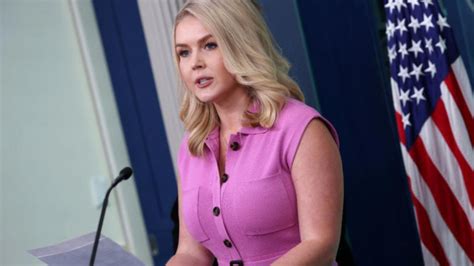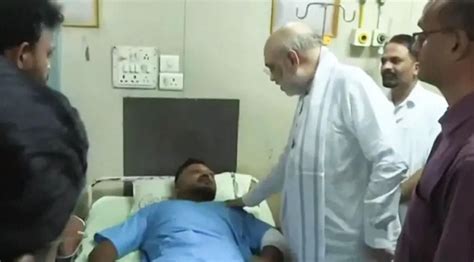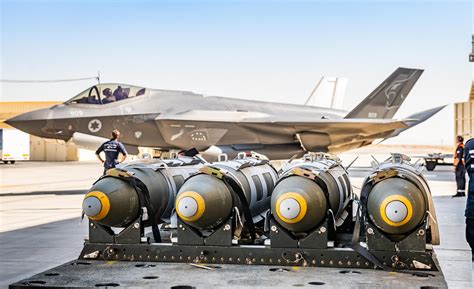
White House Principal Deputy Press Secretary Karine Jean-Pierre abruptly ended a press briefing on Thursday after facing persistent questions about the White House’s stance on free speech, particularly concerning comments made by Trump campaign spokeswoman Karoline Leavitt during an interview on CNN.
Karine Jean-Pierre abruptly ended a press briefing Thursday amid repeated questioning about the White House’s position on free speech and the administration’s perceived attempts to censor viewpoints it disagrees with. The confrontation stemmed from remarks made by CNN anchor Kasie Hunt, who cut short an interview with Trump campaign spokeswoman Karoline Leavitt. Hunt stated that she was halting the interview because Leavitt was persistently attacking her colleagues and making “disrespectful” comments about CNN anchors Jake Tapper and Dana Bash, who are scheduled to moderate an upcoming debate between President Biden and former President Trump.
The White House has faced increasing scrutiny over its communications strategy and its approach to critical media coverage. The exchange highlighted the ongoing tensions between the administration and conservative media outlets, raising questions about the balance between combating misinformation and respecting free speech principles.
“I’m done here,” Jean-Pierre stated before exiting the briefing room, leaving reporters visibly surprised and prompting immediate reactions across various media platforms. The incident underscores the increasingly polarized media landscape and the challenges the White House faces in navigating these divisions while communicating its policy agenda.
The confrontation began when a reporter pressed Jean-Pierre on whether the White House believed CNN had a right to cut short the interview with Leavitt. The reporter cited concerns that the move could be perceived as censorship and asked for clarification on the White House’s position on free speech in such contexts.
Jean-Pierre initially attempted to deflect the question by emphasizing the importance of respectful dialogue and condemning personal attacks. However, reporters continued to press her for a more direct answer, leading to a visibly frustrated Jean-Pierre terminating the briefing.
The incident has ignited a debate among legal experts, journalists, and political commentators regarding the boundaries of free speech and the responsibilities of media outlets in presenting diverse viewpoints. Critics of CNN’s decision argue that the network’s move constitutes censorship, while defenders maintain that media outlets have the right to control their platforms and prevent the spread of misinformation or personal attacks.
The confrontation also sheds light on the broader issue of media bias and the perceived influence of political agendas on news coverage. Conservative media outlets have long accused mainstream media organizations of being biased against Republicans and conservative viewpoints, while liberal media outlets often accuse conservative outlets of spreading misinformation and promoting harmful rhetoric.
The White House has repeatedly denied allegations of censorship or attempts to stifle free speech. Officials have maintained that the administration is committed to upholding the First Amendment while also working to combat misinformation and promote accurate information.
However, critics argue that the administration’s rhetoric and actions sometimes contradict this commitment. They point to instances where White House officials have publicly criticized media outlets for critical coverage or have attempted to influence editorial decisions.
The abrupt ending of the press briefing has fueled further speculation about the White House’s approach to media relations and its commitment to transparency. Critics argue that the incident demonstrates a lack of willingness to engage with difficult questions and a tendency to shut down critical voices.
The episode involving Karoline Leavitt unfolded when she appeared on CNN to discuss the upcoming presidential debate. Leavitt criticized CNN anchors Jake Tapper and Dana Bash, calling them biased and questioning their ability to fairly moderate the debate.
In response, Kasie Hunt interrupted Leavitt, stating that she was ending the interview due to the disrespectful nature of her comments. Hunt stated that she would not allow her colleagues to be attacked on her show.
“I am going to halt this conversation if you are going to continue to attack my colleagues,” Hunt said.
Leavitt responded by accusing CNN of censorship and defending her right to express her opinion. The exchange quickly escalated, with both women talking over each other before Hunt ultimately cut Leavitt off the air.
The incident immediately went viral on social media, sparking intense debate about the responsibilities of media outlets and the boundaries of free speech. Conservatives accused CNN of censorship and bias, while liberals defended the network’s right to control its platform.
The White House’s decision to end the press briefing amidst questioning about the incident has further fueled the controversy and raised questions about the administration’s position on the issue.
Legal experts have weighed in on the debate, offering differing opinions on whether CNN’s actions constitute censorship. Some argue that private media companies have the right to set their own standards for content and to refuse to platform views they deem to be harmful or disrespectful. Others argue that media outlets have a responsibility to provide a platform for diverse viewpoints, even those that may be controversial or unpopular.
The First Amendment of the United States Constitution protects freedom of speech, but it also includes limitations. The Supreme Court has recognized certain categories of speech that are not protected, such as incitement to violence, defamation, and obscenity.
The debate over the Leavitt interview highlights the complexities of applying free speech principles in the context of modern media. With the rise of social media and the proliferation of online news sources, the lines between journalism, opinion, and propaganda have become increasingly blurred.
Media outlets are facing growing pressure to combat misinformation and to address the spread of harmful content. However, they must also be careful to avoid censorship and to respect the rights of individuals to express their opinions.
The White House’s handling of the situation has drawn criticism from both sides of the political spectrum. Conservatives accuse the administration of being hostile to free speech and of attempting to silence dissenting voices. Liberals argue that the administration has not done enough to combat misinformation and to hold media outlets accountable for spreading false information.
The incident involving Karoline Leavitt and the subsequent White House press briefing underscore the challenges facing the Biden administration as it seeks to navigate the complex and polarized media landscape. The administration must balance its commitment to free speech with its responsibility to combat misinformation and to promote accurate information.
The White House’s media strategy has been under scrutiny since the beginning of President Biden’s term. The administration has sought to strike a balance between providing access to the press and controlling the narrative around its policies and actions.
Jean-Pierre, as the principal deputy press secretary, plays a key role in shaping the administration’s media strategy and in responding to questions from reporters. She has faced numerous challenges in this role, including navigating difficult questions about the economy, foreign policy, and domestic issues.
The incident on Thursday highlights the tensions that can arise between the White House and the media, particularly in the current political climate. The White House is often under pressure to defend its policies and to respond to criticism from the media, while the media has a responsibility to hold the administration accountable and to ask tough questions.
The debate over free speech is likely to continue to be a major issue in American politics. As the country becomes more divided, the question of how to balance free speech with the need to combat misinformation and to promote respectful dialogue will only become more pressing.
The abrupt ending of the White House press briefing on Thursday serves as a reminder of the challenges facing the Biden administration as it seeks to navigate the complex and polarized media landscape. The administration must find a way to balance its commitment to free speech with its responsibility to combat misinformation and to promote accurate information. The ability to engage with diverse viewpoints, even those critical of the administration, will be crucial for maintaining public trust and ensuring a healthy democracy.
The incident also highlights the broader issue of trust in media. With trust in media institutions declining, it’s essential for both the White House and media outlets to act with transparency and integrity. The perception of bias or censorship can further erode public trust, making it harder to have meaningful dialogue and address critical issues.
The challenge for the White House moving forward will be to develop a communication strategy that addresses these concerns, fostering open dialogue while also ensuring accurate information is disseminated. This may involve engaging with a wider range of media outlets, being more proactive in addressing misinformation, and demonstrating a willingness to answer tough questions, even when they are uncomfortable.
The episode with Karoline Leavitt serves as a microcosm of the larger tensions within American society regarding free speech, media bias, and political polarization. Finding common ground and fostering respectful dialogue will be essential for navigating these challenges and building a more united and informed citizenry. The White House, as a key player in shaping public discourse, has a responsibility to lead by example in promoting these values.
The long-term impact of this incident remains to be seen, but it underscores the importance of ongoing conversations about free speech, media responsibility, and the role of government in shaping public discourse. The way these issues are addressed will have a significant impact on the future of American democracy.
The incident also brings to the forefront the ethical considerations for journalists and media outlets. While they have a right to control their platforms and prevent the spread of misinformation, they also have a responsibility to provide a platform for diverse viewpoints and to avoid censorship. Striking this balance is crucial for maintaining public trust and ensuring a healthy democracy.
The White House’s reaction to the incident also raises questions about its understanding of the First Amendment and its commitment to protecting free speech. While the administration has repeatedly stated its support for the First Amendment, its actions sometimes suggest otherwise. The administration must ensure that its rhetoric and actions align with its stated commitment to protecting free speech.
The confrontation also highlights the role of social media in shaping public discourse. The incident immediately went viral on social media, sparking intense debate and further fueling the controversy. Social media platforms have become powerful tools for disseminating information and shaping public opinion, but they also pose challenges for combating misinformation and promoting respectful dialogue.
The White House must develop a strategy for engaging with social media that addresses these challenges. This may involve working with social media platforms to combat misinformation, promoting media literacy, and encouraging respectful dialogue online.
The incident also underscores the importance of civic education. Many Americans lack a basic understanding of the First Amendment and the principles of free speech. Civic education can help to promote a better understanding of these principles and to foster a more informed and engaged citizenry.
The White House can play a role in promoting civic education by supporting educational initiatives, partnering with schools and universities, and using its platform to educate the public about the First Amendment and the importance of free speech.
The abrupt ending of the White House press briefing on Thursday serves as a reminder of the importance of open dialogue and respectful debate. In a democracy, it is essential for citizens to be able to express their opinions freely and to engage in respectful dialogue with those who hold different views. The White House has a responsibility to foster this environment and to ensure that all voices are heard.
The incident also highlights the importance of media literacy. With the proliferation of online news sources and the spread of misinformation, it is essential for citizens to be able to critically evaluate the information they encounter and to distinguish between credible sources and unreliable sources. Media literacy education can help to promote these skills and to foster a more informed and engaged citizenry.
The White House can play a role in promoting media literacy by supporting educational initiatives, partnering with schools and universities, and using its platform to educate the public about media literacy skills.
The abrupt ending of the White House press briefing on Thursday serves as a reminder of the challenges facing American democracy. The country is deeply divided, and there is a lack of trust in many institutions, including the media and the government. Overcoming these challenges will require a commitment to open dialogue, respectful debate, and a shared understanding of the principles of free speech and democratic governance.
The White House has a responsibility to lead by example in promoting these values and to work towards a more united and informed citizenry.
The situation surrounding the press briefing also invites a closer look at the role of campaign spokespeople in shaping public discourse. Their primary objective is to advocate for their candidate and their platform, which can sometimes lead to clashes with journalists and media outlets who are tasked with providing objective and critical coverage.
In the case of Karoline Leavitt, her aggressive criticism of CNN anchors ahead of the debate raised questions about her intentions and the overall strategy of the Trump campaign. While campaign spokespeople have a right to express their opinions, they also have a responsibility to engage in respectful and factual dialogue.
Media outlets, in turn, have a responsibility to provide a platform for diverse viewpoints, even those that may be controversial or unpopular. However, they also have a right to control their platforms and to prevent the spread of misinformation or personal attacks. Striking this balance is crucial for ensuring a fair and informative election.
The White House’s handling of the situation also reflects the growing challenges of managing media relations in the digital age. With the proliferation of online news sources and the speed at which information can spread, it is increasingly difficult for the White House to control the narrative and to respond to criticism in a timely manner.
The White House must adapt its communication strategy to meet these challenges. This may involve being more proactive in engaging with the media, using social media to communicate directly with the public, and developing a rapid response mechanism for addressing misinformation and criticism.
The incident also highlights the importance of transparency and accountability in government. The White House has a responsibility to be transparent with the public about its policies and actions, and to be accountable for its decisions. This includes being willing to answer tough questions from the media and to address criticism in a constructive manner.
By being transparent and accountable, the White House can build trust with the public and strengthen American democracy.
The controversy also underscores the importance of responsible online behavior. The incident quickly went viral on social media, with many people expressing strong opinions and engaging in heated debate. While it is important to allow for free expression online, it is also important to promote responsible online behavior and to combat the spread of misinformation and hate speech.
Social media platforms have a responsibility to address these issues, and individuals also have a responsibility to be mindful of the impact of their online behavior.
The White House can play a role in promoting responsible online behavior by supporting educational initiatives, partnering with social media platforms, and using its platform to promote respectful dialogue online.
Frequently Asked Questions (FAQ)
1. What specifically triggered Karine Jean-Pierre to end the White House press briefing abruptly?
The press briefing ended after persistent questioning from reporters regarding the White House’s stance on free speech, particularly in relation to CNN’s decision to cut short an interview with Trump campaign spokesperson Karoline Leavitt due to what CNN deemed disrespectful comments about its anchors, Jake Tapper and Dana Bash.
2. What was Karoline Leavitt’s role in the events leading up to the press briefing’s end?
Karoline Leavitt, as a Trump campaign spokesperson, made comments critical of CNN anchors Jake Tapper and Dana Bash during an interview on CNN. CNN anchor Kasie Hunt ended the interview, citing Leavitt’s “disrespectful” attacks on her colleagues who are scheduled to moderate an upcoming debate between President Biden and former President Trump. This incident sparked a debate about free speech and media bias, which reporters then pressed Jean-Pierre about during the press briefing.
3. Did CNN censor Karoline Leavitt, and what are the legal implications?
The question of whether CNN censored Karoline Leavitt is a matter of debate. Legally, private media companies have the right to control the content they broadcast and can set standards for what they deem acceptable. However, critics argue that such actions could be seen as censorship, especially when diverse viewpoints are stifled. The First Amendment protects free speech, but it doesn’t necessarily compel private entities to provide a platform for all opinions. Legal experts have varied opinions on the issue.
4. What has been the White House’s official statement regarding free speech and media bias in this situation?
The White House has repeatedly stated its commitment to upholding the First Amendment and protecting free speech. However, they have also emphasized the importance of combating misinformation and promoting accurate information. Critics argue that the administration’s actions sometimes contradict these statements, pointing to instances where White House officials have criticized media outlets for critical coverage. As to any specific statement about CNN’s actions, there has been none.
5. What are the potential long-term consequences of this incident for the relationship between the White House and the media?
The abrupt ending of the press briefing could further strain the relationship between the White House and the media, especially conservative media outlets. It raises questions about the administration’s commitment to transparency and its willingness to engage with critical viewpoints. This incident might also contribute to the erosion of public trust in both the media and the government, making it more difficult to have constructive dialogue and address important issues. The White House will likely need to reassess its media strategy to better address these concerns.









